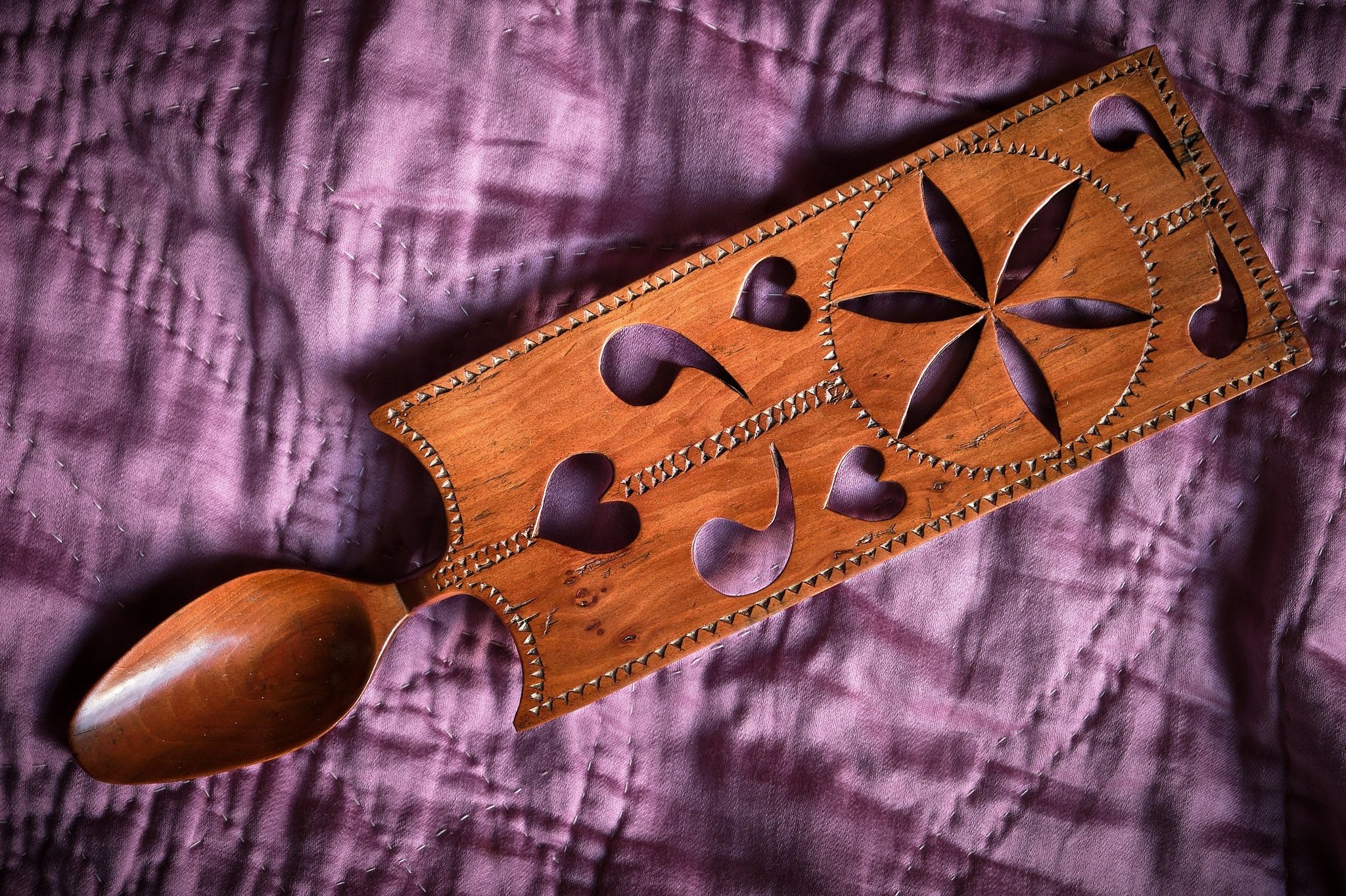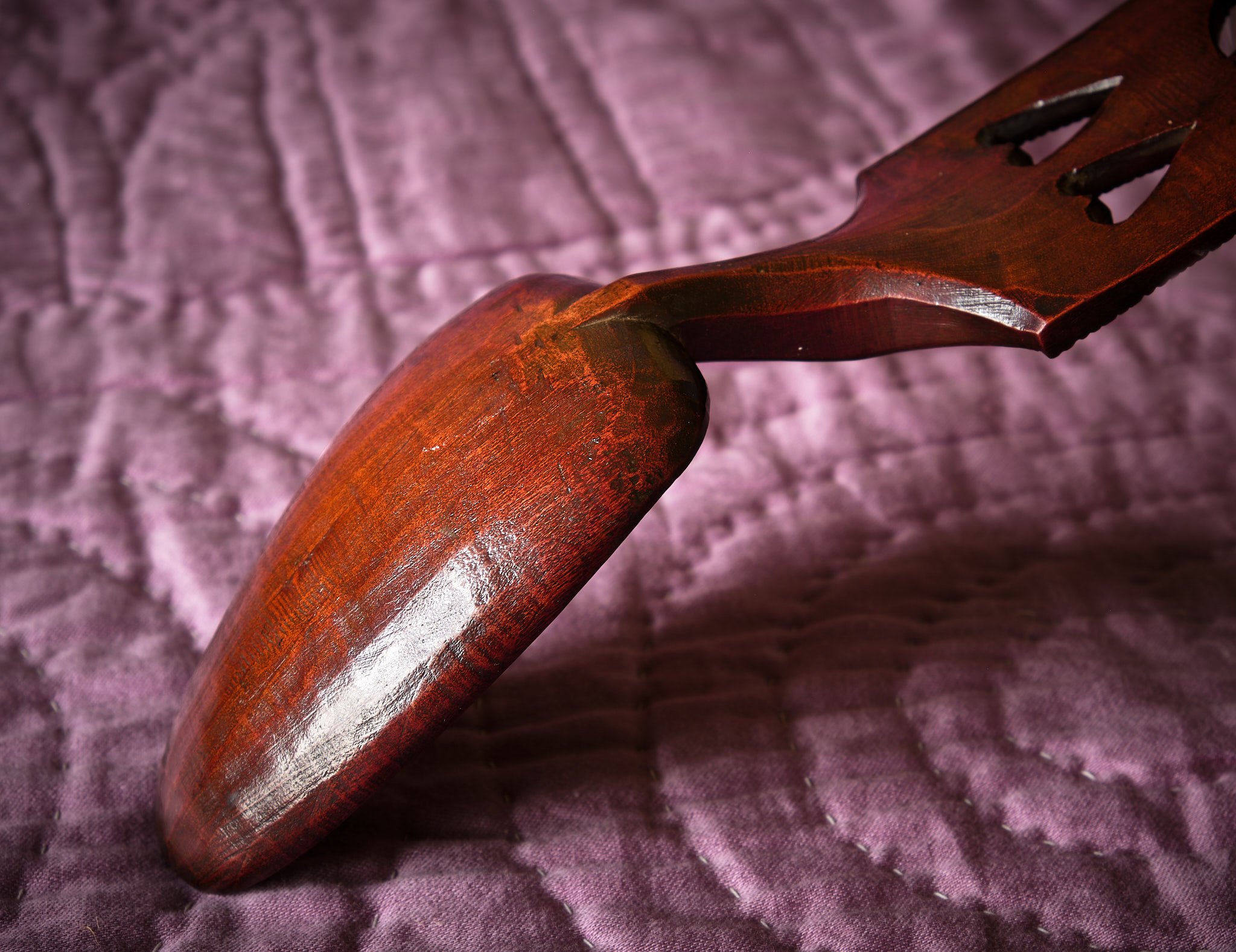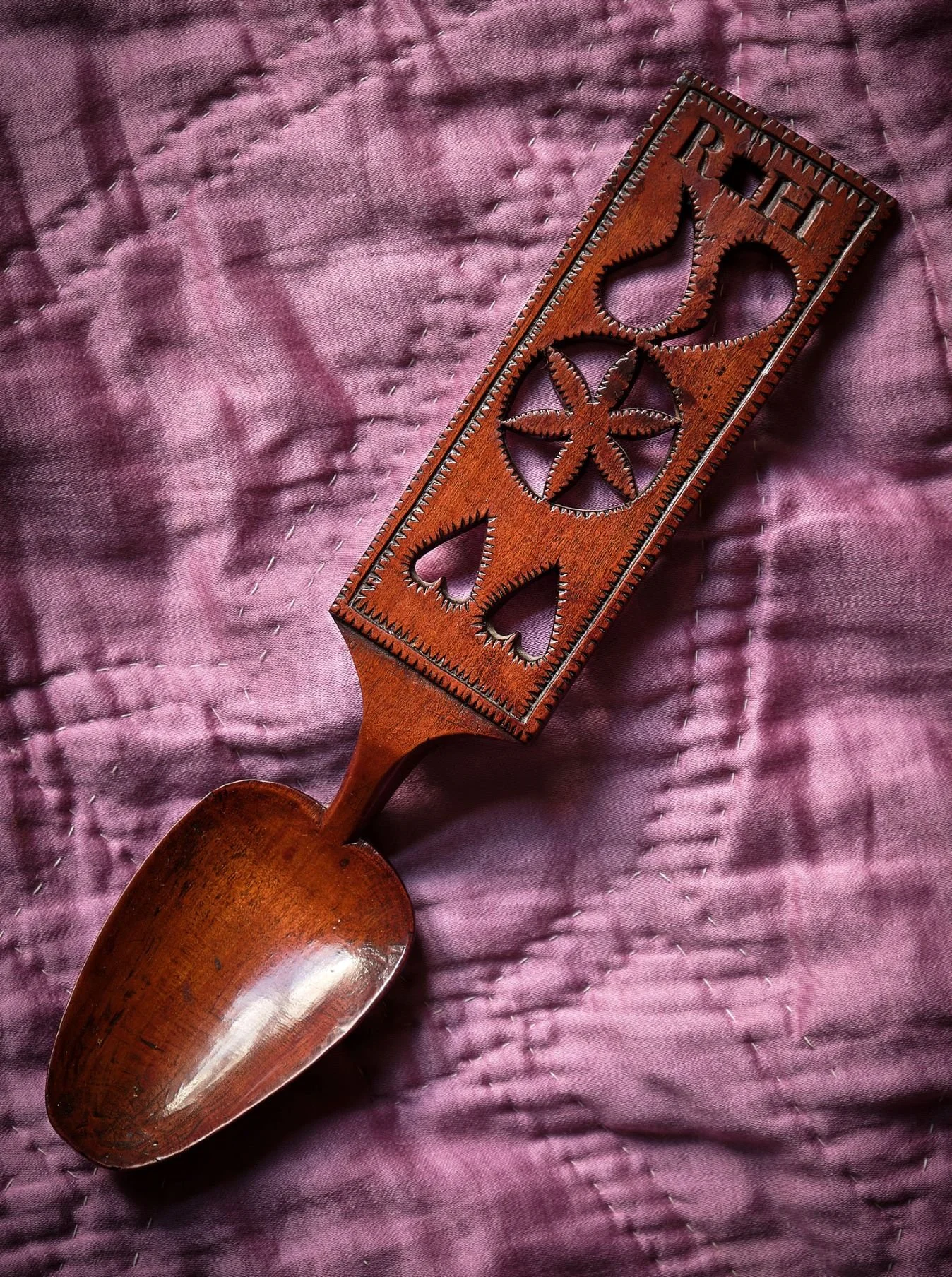
Welsh Lovespoons
The lovespoon tradition has its roots in the production of everyday utensils used in the making and eating of food. Wood was the only choice for most people, unable to afford more costly metal utensils, especially those woods that were readily available locally. Sycamore was particularly popular as it was close grained, relatively easy to work and didn`t taint the food.
Lovespoons developed from the ordinary wooden spoon into an artistic expression of a man`s romantic intentions and as a means of displaying his skill as a craftsman. Although not confined to Wales, Welsh lovespoon makers produced some of the most striking and diverse examples of this expression of folk art.
The earliest dated Welsh example, at the Museum of Welsh Life at St Fagans dates from 1667. This and other dated examples suggest that early lovespoons were not only decorative but useful.
By the 19th century, spoons were becoming larger and more elaborately decorated, often with multiple bowls and large handles with intricately pierced patterns. These symbolic designs often included hearts, commas, keys and keyholes, diamonds, wheels, spades, flowers, birds and animals.
Balls in cages and chains were also popular and even these were carved from single blocks of wood. Initials and dates are found occasionally although place names are more unusual.
Painted decoration is unusual, especially where multiple colours are used. Red sealing wax is more commonly found to accentuate decorative designs, dates and initials.
Close grained woods such as sycamore and fruitwood provided an ideal material for carving intricate designs but other woods including pine, oak, ash and beech, were also used as well as bone and marine ivory.
Coloured and mirrored glass and even photographs and hand written inscriptions enclosed behind clear glass, were incorporated. This diversity in design, scale and materials gives the collector great scope in acquiring a wide variety of types although genuine old spoons are becoming scarce.
More examples of Welsh lovespoons can be found in museum collections across Wales:
















